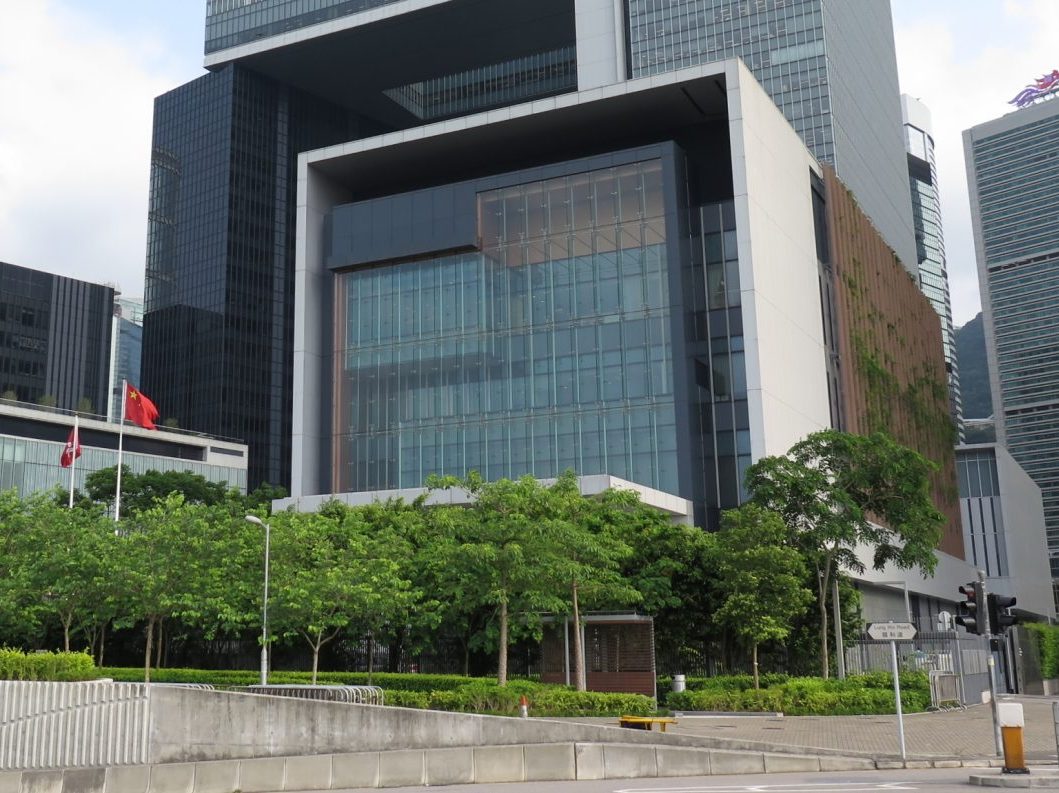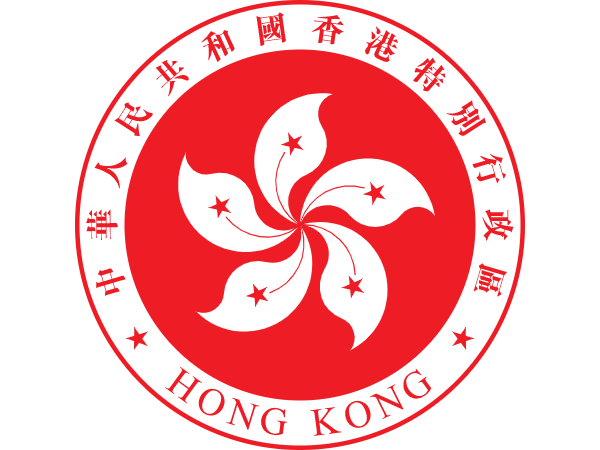December 29, 2020
Hong Kong Public Opinion Research Institute Press Conference – Press Materials
POP releases popularities of CE and SAR Government,
results of the 2020 review and 2021 forecast survey
and Public Sentiment Index
Special Announcement
The predecessor of Hong Kong Public Opinion Program (HKPOP) was The Public Opinion Programme at The University of Hong Kong (HKUPOP). “POP” in this release can refer to HKPOP or its predecessor HKUPOP.
Abstract
POP successfully interviewed 1,014 Hong Kong residents by random telephone survey conducted by real interviewers in mid-December. Our survey shows that the popularity rating of CE Carrie Lam now stands at 29.7 marks. Her net popularity is negative 51 percentage points. These figures have not changed much from half a month ago. The latest net satisfaction of the HKSAR Government stands at negative 43 percentage points while the net trust value is negative 27 percentage points, down by 8 percentage points, but the change has not gone beyond the sampling error. People’s net satisfaction rates with the current political, livelihood and economic conditions are negative 50, negative 51 and negative 59 percentage points respectively, which are more or less the same as last month. As for our annual year-end survey, it shows that net satisfaction with Hong Kong’s development in the year past stands at negative 62 percentage points, which has significantly improved from last year’s historical low. Looking ahead, net optimism toward Hong Kong’s development next year in general stands at negative 6 percentage points, which is a huge improvement from last year. At an individual level, net happiness value in the year past stands at negative 45 percentage points, again hitting a new low since the survey series began in 1992. As for personal development in the coming year, net optimism stands at positive 6 percentage points, which is significantly higher than the figure recorded last year. As for people’s New Year wishes, society-related ones have dropped significantly from its historical high to 49%. Meanwhile, wishes related to personal matters have bounced back from its historical low to 22%, while 7% were world peace-related. As for the PSI, the latest figure is 64.5, down by 3.3 points from early December. The effective response rate of the survey is 68.7%. The maximum sampling error of percentages is +/-4%, that of net values is +/-7% and that of ratings is +/-2.1 at 95% confidence level.
Contact Information
| Date of survey | : | 18-22/12/2020 |
| Survey method | : | Random telephone survey conducted by real interviewers |
| Target population | : | Cantonese-speaking Hong Kong residents aged 18 or above |
| Sample size[1] | : | 1,014 (including 503 landline and 511 mobile samples) |
| Effective response rate[2] | : | 68.7% |
| Sampling error[3] | : | Sampling error of percentages not more than +/-4%, that of net values not more than +/-7% and that of ratings not more than +/-2.1 at 95% conf. level |
| Weighting method | : | Rim-weighted according to figures provided by the Census and Statistics Department. The gender-age distribution of the Hong Kong population came from “Mid-year population for 2019”, while the educational attainment (highest level attended) distribution and economic activity status distribution came from “Women and Men in Hong Kong – Key Statistics (2019 Edition)”. |
- This figure is the total sample size of the survey. Some questions may only involve a subsample, the size of which can be found in the tables below.
- In July 2018, POP revised the calculation of effective response rate. Thus, the response rates before and after the change cannot be directly compared.
- All error figures in this release are calculated at 95% confidence level. “95% confidence level” means that if we were to repeat a certain survey 100 times with different random samples, we would expect 95 times having the population parameter within the respective error margins calculated. Because of sampling errors, when quoting percentages, journalists should refrain from reporting decimal places, whereas one decimal place can be used when quoting rating figures.
Popularity of CE and SAR Government
Recent popularity figures of CE Carrie Lam are summarized as follows:
| Date of survey | 5-8/10/20 | 19-22/10/20 | 9-13/11/20 | 23-26/11/20[4] | 7-10/12/20 | 18-22/12/20 | Latest change |
| Sample size | 1,002 | 1,020 | 1,005 | 1,085 | 1,009 | 1,014 | — |
| Response rate | 62.8% | 62.2% | 63.9% | 74.6% | 70.0% | 68.7% | — |
| Latest findings | Finding | Finding | Finding | Finding | Finding | Finding & error | — |
| Rating of CE Carrie Lam | 28.6 | 27.2 | 30.8[5] | 33.5 | 30.6 | 29.7+/-2.1 | -0.9 |
| Vote of confidence in CE Carrie Lam |
18% | 18% | 21% | 21% | 20% | 18+/-2% | -1% |
| Vote of no confidence in CE Carrie Lam |
72% | 74% | 69%[5] | 66% | 69% | 69+/-3% | — |
| Net approval rate | -53% | -56% | -48%[5] | -45% | -50% | -51+/-5% | -1% |
- POP conducted a Policy Address instant survey on 25/11/2020 in between two tracking surveys, the results are: CE rating at 26.8 marks, net approval rate at negative 57 percentage points. Because our tracking surveys do not use online samples, and our latest survey started two days before the Policy Address, it is better to compare the latest figures with those collected in our previous survey conducted on 9-13/11/2020.
- The difference between the figure and the result from the previous survey has gone beyond the sampling error at 95% confidence level, meaning that the change is statistically significant prima facie. However, whether the difference is statistically significant is not the same as whether they are practically useful or meaningful, and different weighting methods could have been applied in different surveys.
Recent popularity figures of the HKSAR Government are summarized as follows:
| Date of survey | 20-24/7/20 | 17-20/8/20 | 21-24/9/20 | 19-22/10/20 | 23-26/11/20 | 18-22/12/20 | Latest change |
| Sample size | 611-615 | 587-677 | 589-695 | 624-637 | 518-529 | 558-623 | — |
| Response rate | 62.5% | 60.9% | 61.5% | 62.2% | 74.6% | 68.7% | — |
| Latest findings | Finding | Finding | Finding | Finding | Finding | Finding & error | — |
| Satisfaction rate of SARG performance[6] | 19% | 20% | 17% | 17% | 19% | 17+/-3% | -3% |
| Dissatisfaction rate of SARG performance[6] | 65%[7] | 65% | 63% | 69%[7] | 62%[7] | 60+/-4% | -3% |
| Net satisfaction rate | -46% | -45% | -46% | -52% | -43% | -43+/-6% | — |
| Mean value[6] | 2.0 | 2.1 | 2.1 | 2.0 | 2.1[7] | 2.1+/-0.1 | — |
| Trust in HKSAR Government[6] | 25% | 30% | 27% | 26% | 30% | 29+/-4% | -1% |
| Distrust in HKSAR Government[6] | 61% | 59% | 55% | 61%[7] | 49%[7] | 56+/-4% | +7%[7] |
| Net trust | -35% | -29% | -28% | -35% | -20%[7] | -27+/-7% | -8% |
| Mean value[6] | 2.2 | 2.4 | 2.4 | 2.3 | 2.5[7] | 2.4+/-0.1 | -0.1 |
- Collapsed from a 5-point scale. The mean value is calculated by quantifying all individual responses into 1, 2, 3, 4, 5 marks according to their degree of positive level, where 1 is the lowest and 5 the highest, and then calculate the sample mean.
- The difference between the figure and the result from the previous survey has gone beyond the sampling error at 95% confidence level, meaning that the change is statistically significant prima facie. However, whether the difference is statistically significant is not the same as whether they are practically useful or meaningful, and different weighting methods could have been applied in different surveys.
People’s recent appraisals of society’s conditions are summarized as follows:
| Date of survey | 20-24/7/20 | 17-20/8/20 | 21-24/9/20 | 19-22/10/20 | 23-26/11/20 | 18-22/12/20 | Latest change |
| Sample size | 1,029 | 1,020 | 1,013 | 1,020 | 1,085 | 1,014 | — |
| Response rate | 62.5% | 60.9% | 61.5% | 62.2% | 74.6% | 68.7% | — |
| Latest findings | Finding | Finding | Finding | Finding | Finding | Finding & error | — |
| Current political condition: Satisfaction rate[8] |
8%[9] | 9% | 9% | 9% | 15%[9] | 16+/-2% | — |
| Current political condition: Dissatisfaction rate[8] |
78%[9] | 77% | 73%[9] | 75% | 66%[9] | 65+/-3% | -1% |
| Net satisfaction rate | -70%[9] | -68% | -65% | -66% | -50%[9] | -50+/-5% | +1% |
| Mean value[8] | 1.6[9] | 1.7 | 1.7 | 1.7 | 2.0[9] | 2.0+/-0.1 | — |
| Current livelihood condition: Satisfaction rate[8] |
15%[9] | 12%[9] | 13% | 14% | 15% | 14+/-2% | -1% |
| Current livelihood condition: Dissatisfaction rate[8] |
66% | 70% | 64%[9] | 67% | 61%[9] | 65+/-3% | +3% |
| Net satisfaction rate | -51% | -57%[9] | -51% | -54% | -46%[9] | -51+/-5% | -4% |
| Mean value[8] | 2.1 | 2.0 | 2.1 | 2.0 | 2.2[9] | 2.1+/-0.1 | -0.1 |
| Current economic condition: Satisfaction rate[8] |
13% | 10% | 12% | 9% | 10% | 10+/-2% | -1% |
| Current economic condition: Dissatisfaction rate[8] |
64% | 71%[9] | 69% | 70% | 64%[9] | 68+/-3% | +5%[9] |
| Net satisfaction rate | -52% | -61%[9] | -57% | -61% | -53%[9] | -59+/-4% | -5% |
| Mean value[8] | 2.1 | 2.0[9] | 2.1 | 2.0 | 2.1[9] | 2.0+/-0.1 | -0.1 |
- Collapsed from a 5-point scale. The mean value is calculated by quantifying all individual responses into 1, 2, 3, 4, 5 marks according to their degree of positive level, where 1 is the lowest and 5 the highest, and then calculate the sample mean.
- The difference between the figure and the result from the previous survey has gone beyond the sampling error at 95% confidence level, meaning that the change is statistically significant prima facie. However, whether the difference is statistically significant is not the same as whether they are practically useful or meaningful, and different weighting methods could have been applied in different surveys.
Our latest survey shows that the popularity rating of CE Carrie Lam now stands at 29.7 marks. Her approval rate is 18%, disapproval rate 69%, giving a net popularity of negative 51 percentage points. All popularity figures have not changed much from half a month ago.
Regarding the HKSAR Government, the latest satisfaction rate is 17%, whereas 60% were dissatisfied, thus net satisfaction stands at negative 43 percentage points. The mean score is 2.1, meaning close to “quite dissatisfied” in general. Regarding people’s trust in the HKSAR Government, 29% of the respondents expressed trust, 56% expressed distrust, thus the net trust value is negative 27 percentage points, down by 8 percentage points, but the change has not gone beyond the sampling error. The mean score is 2.4, meaning between “quite distrust” and “half-half” in general.
As for people’s satisfaction with the current political, livelihood and economic conditions, the latest satisfaction rates are 16%, 14% and 10% respectively, while the net satisfaction rates are negative 50, negative 51 and negative 59 percentage points respectively. The mean scores are 2.0, 2.1 and 2.0 respectively, meaning close to “quite dissatisfied” in general. The figures above are more or less the same as last month.
2020 Review and 2021 Forecast
Herewith the figures of 2020 review and 2021 forecast, compared with similar figures obtained in recent years:
| Date of survey | 18-19/12/17 | 17-20/12/18 | 18-23/12/19 | 18-22/12/20 | Latest change |
| Sample size | 648 | 1,000 | 1,067 | 633 | — |
| Response rate | 64.9% | 60.6% | 61.6% | 68.7% | — |
| Latest findings | Finding | Finding | Finding | Finding & error | — |
| Satisfied with HK’s development in the year past[10] | 38%[11] | 36% | 9%[11] | 9+/-2% | — |
| Dissatisfied with HK’s development in the year past[10] | 35%[11] | 37% | 84%[11] | 72+/-4% | -12%[11] |
| Net satisfaction rate | 3%[11] | -1% | -75%[11] | -62+/-5% | +12%[11] |
| Mean value[10] | 3.0[11] | 2.9 | 1.6[11] | 1.9+/-0.1 | +0.2[11] |
| Expected HK’s development to be better next year | 39% | 23%[11] | 23% | 34+/-4% | +10%[11] |
| Expected HK’s development to be worse next year | 29% | 50%[11] | 59%[11] | 39+/-4% | -20%[11] |
| Net optimism | 10% | -27%[11] | -36%[11] | -6+/-7% | +30%[11] |
| Respondents who were happy in the year past[10] | 56%[11] | 55% | 20%[11] | 13+/-3% | -6%[11] |
| Respondents who were unhappy in the year past[10] | 20% | 15%[11] | 58%[11] | 59+/-4% | +1% |
| Net happiness value | 36% | 40% | -38%[11] | -45+/-6% | -7% |
| Mean value[10] | 3.4 | 3.5[11] | 2.3[11] | 2.2+/-0.1 | — |
| Expected personal development to become better next year | 39%[11] | 39% | 31%[11] | 31+/-4% | — |
| Expected personal development to become worse next year | 15% | 17% | 38%[11] | 25+/-3% | -13%[11] |
| Net optimism | 24%[11] | 22% | -7%[11] | 6+/-6% | +13%[11] |
| New Year wishes: Society-related (e.g. economic related, people’s livelihood, political related and others) | 38%[11] | 39% | 65%[11] | 49+/-4% | -16%[11] |
| New Year wishes: Personal matters (e.g. health, career, studies, wealth, family, love, marriage, friendship and other personal issues) | 31%[11] | 34% | 9%[11] | 22+/-3% | +12%[11] |
| New Year wishes: World peace-related | 16% | 8%[11] | 12%[11] | 7+/-2% | -5%[11] |
| No special wish | 9% | 9% | 8% | 10+/-2% | +2% |
- Collapsed from a 5-point scale. The mean value is calculated by quantifying all individual responses into 1, 2, 3, 4, 5 marks according to their degree of positive level, where 1 is the lowest and 5 the highest, and then calculate the sample mean.
- The difference between the figure and the result from the previous survey has gone beyond the sampling error at 95% confidence level, meaning that the change is statistically significant prima facie. However, whether the difference is statistically significant is not the same as whether they are practically useful or meaningful, and different weighting methods could have been applied in different surveys.
Our annual year-end survey shows that 9% were satisfied with Hong Kong’s development in the year past, 72% were dissatisfied, giving a net satisfaction of negative 62 percentage points. The mean score is 1.9, meaning close to “quite dissatisfied” in general. The situation has significantly improved from last year’s historical low. Looking ahead, 34% expected Hong Kong’s overall development next year would be better than last year, 39% said it would be worse, giving a net optimism of negative 6 percentage points, which is a huge improvement from last year.
At an individual level, 13% said they lived a happy life in the year past, 59% said they were not happy, giving a net happiness value of negative 45 percentage points, again hitting a new low since the survey series began in 1992. The mean score is 2.2, meaning close to “quite unhappy” in general. As for the coming year, 31% believed their personal development would become better, 25% thought they would be getting worse, giving a net optimism of positive 6 percentage points, which is significantly higher than the figure recorded last year.
As for people’s New Year wishes, society-related ones have dropped significantly from its historical high to 49%. Meanwhile, wishes related to personal matters have bounced back from its historical low to 22%, while 7% were world peace-related.
Public Sentiment Index
The Public Sentiment Index (PSI) compiled by POP aims at quantifying Hong Kong people’s sentiments, in order to explain and predict the likelihood of collective behaviour. PSI comprises 2 components: one being Government Appraisal (GA) Score and the other being Society Appraisal (SA) Score. GA refers to people’s appraisal of society’s governance while SA refers to people’s appraisal of the social environment. Both GA and SA scores are compiled from a respective of 4 and 6 opinion survey figures. All PSI, GA and SA scores range between 0 to 200, with 100 meaning normal.
The chart of PSI, GA and SA are shown below:
| Latest figure | Public Sentiment Index (PSI): 64.5 (-3.3) |
Government Appraisal (GA): 67.2 (-2.6) |
Society Appraisal (SA): 62.0 (-3.2) |
Recent values of PSI, GA, SA and 10 fundamental figures are tabulated as follows:
| Cut-off date | 8/10/20 | 22/10/20 | 13/11/20 | 26/11/20 | 10/12/20 | 22/12/20 | Latest change |
| Public Sentiment Index (PSI) | 61.1 | 56.2 | 57.6 | 68.8 | 67.7 | 64.5 | -3.3 |
| Government Appraisal (GA) | 65.8 | 61.2 | 63.8 | 71.7 | 69.8 | 67.2 | -2.6 |
| Rating of CE | 28.6 | 27.2 | 30.8 | 33.5 | 30.6 | 29.7 | -0.9 |
| Net approval rate of CE | -53% | -56% | -48% | -45% | -50% | -51% | -1% |
| Mean value of people’s satisfaction with SARG | 2.1[12] | 2.0 | 2.0[12] | 2.1 | 2.1[12] | 2.1 | — |
| Mean value of people’s trust in SARG | 2.4[12] | 2.3 | 2.3[12] | 2.5 | 2.5[12] | 2.4 | -0.1 |
| Society Appraisal (SA) | 57.4[12] | 53.2 | 53.2[12] | 65.3 | 65.3[12] | 62.0 | -3.2 |
| People’s satisfaction with political condition | 1.7[12] | 1.7 | 1.7[12] | 2.0 | 2.0[12] | 2.0 | — |
| Weighting index of political condition | 0.33[12] | 0.33[12] | 0.33[12] | 0.33[12] | 0.33[12] | 0.33[12] | — |
| People’s satisfaction with economic condition | 2.1[12] | 2.0 | 2.0[12] | 2.1 | 2.1[12] | 2.0 | -0.1 |
| Weighting index of economic condition | 0.33[12] | 0.33[12] | 0.33[12] | 0.33[12] | 0.33[12] | 0.33[12] | — |
| People’s satisfaction with livelihood condition | 2.1[12] | 2.0 | 2.0[12] | 2.2 | 2.2[12] | 2.1 | -0.1 |
| Weighting index of livelihood condition | 0.35[12] | 0.35[12] | 0.35[12] | 0.35[12] | 0.35[12] | 0.35[12] | — |
- POP will adopt the latest published figures when there are no respective updates.
As for the meaning of the score values, please refer to the following:
| Score value | Percentile | Score value | Percentile |
| 140-200 | Highest 1% | 0-60 | Lowest 1% |
| 125 | Highest 5% | 75 | Lowest 5% |
| 120 | Highest 10% | 80 | Lowest 10% |
| 110 | Highest 25% | 90 | Lowest 25% |
| 100 being normal level, meaning half above half below | |||
The latest PSI stands at 64.5, down by 3.3 points from early December. It can be considered as among the worst 1% across the past 20 years or so. Among the two component scores of PSI, the Government Appraisal (GA) Score that reflects people’s appraisal of society’s governance decreases by 2.6 points to 67.2, whereas the Society Appraisal (SA) Score that reflects people’s appraisal of the social environment decreases by 3.2 points to 62.0. They can both be considered as among the worst 1% across the past 20 years or so.
Data Analysis
Our survey shows that the popularity rating of CE Carrie Lam now stands at 29.7 marks. Her net popularity is negative 51 percentage points. These figures have not changed much from half a month ago. The latest net satisfaction of the HKSAR Government stands at negative 43 percentage points while the net trust value is negative 27 percentage points, down by 8 percentage points, but the change has not gone beyond the sampling error. People’s net satisfaction rates with the current political, livelihood and economic conditions are negative 50, negative 51 and negative 59 percentage points respectively, which are more or less the same as last month.
As for our annual year-end survey, it shows that net satisfaction with Hong Kong’s development in the year past stands at negative 62 percentage points, which has significantly improved from last year’s historical low. Looking ahead, net optimism toward Hong Kong’s development next year in general stands at negative 6 percentage points, which is a huge improvement from last year. At an individual level, net happiness value in the year past stands at negative 45 percentage points, again hitting a new low since the survey series began in 1992. As for personal development in the coming year, net optimism stands at positive 6 percentage points, which is significantly higher than the figure recorded last year. As for people’s New Year wishes, society-related ones have dropped significantly from its historical high to 49%. Meanwhile, wishes related to personal matters have bounced back from its historical low to 22%, while 7% were world peace-related.
As for the PSI, the latest figure is 64.5, down by 3.3 points from early December.



